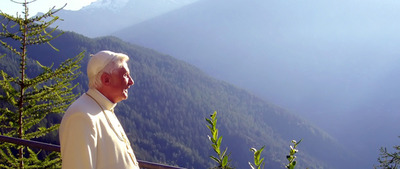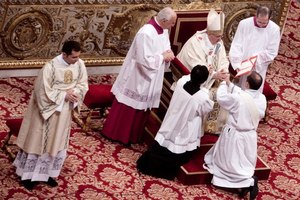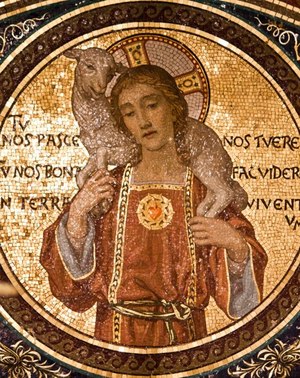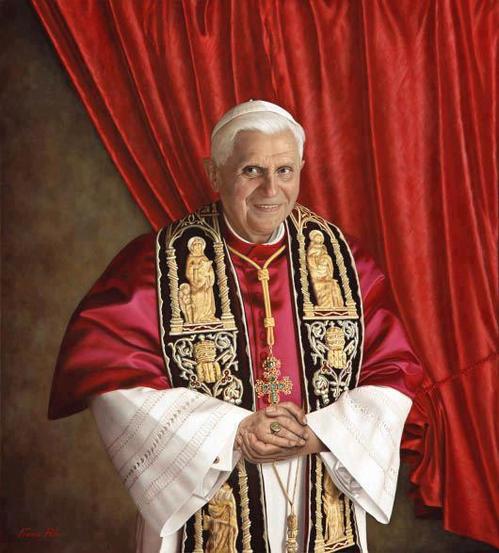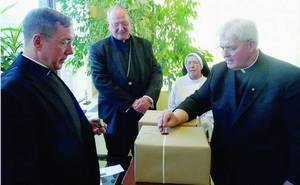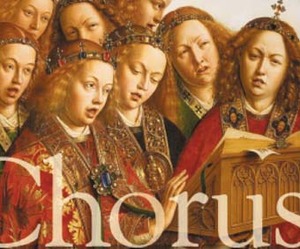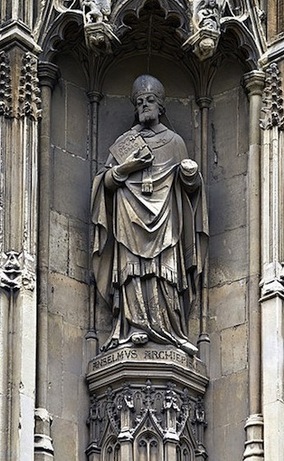 You might be surprised to read this, not all theologians root their work in theology in prayer, personal and communal, of personal devotion, liturgical and lectio divina. I am somewhat confident that some Catholic theologians have a beautiful relationship with the Divine Majesty; that they care, in an intense way, about their spiritual lives through a regular practice of daily prayer, meditation, by availing themselves to the sacraments, attendance at Mass and even the daily singing of the Divine Office. However, you would never know that theologians, particularly Catholics, have rely on prayer for their work because rarely talk about their experiences of prayer. A notable Jesuit spiritual director and writer once said that if you can’t articulate the pattern of your prayer, you aren’t praying.
You might be surprised to read this, not all theologians root their work in theology in prayer, personal and communal, of personal devotion, liturgical and lectio divina. I am somewhat confident that some Catholic theologians have a beautiful relationship with the Divine Majesty; that they care, in an intense way, about their spiritual lives through a regular practice of daily prayer, meditation, by availing themselves to the sacraments, attendance at Mass and even the daily singing of the Divine Office. However, you would never know that theologians, particularly Catholics, have rely on prayer for their work because rarely talk about their experiences of prayer. A notable Jesuit spiritual director and writer once said that if you can’t articulate the pattern of your prayer, you aren’t praying.
VIP party
The Church, ecology and Earth Day: works of being Pro Life
In his short pontificate Pope Benedict XVI became the “green pope.” He was the one who really did do much to bridge a gap between faith and ecology. In his mind, faith and ecology appeals not only a respect for the environment but it is integral for a profound respect for human dignity, womb to tomb. Hence, a respect for creation is also a pro life stance; pro life work is properly called a “human ecology.”
The Brazilian bishops in 2011 heard Benedict teach that “man is not God, but his image, that is why he must try to be more sensitive to the presence of God in what surrounds him: in all creatures and, especially, int eh human in whom there is a certain epiphany of God.” To do otherwise, establishes in humanity “contempt for himself and for what surrounds him.”
Hence, “This is why the first ecology that must be defended is ‘human ecology.’ That is, without a clear defense of human life, from its conception to its natural death, without a defense of the family based on marriage between a man and a woman, without a defense of those who are excluded and marginalized by society, without forgetting in this context those who lose everything, victims of natural disasters, there can never be talk of a genuine defense of the environment…. [There is] “an imperative that stems from the awareness that God entrusts his creation to man, not so that he can exercise over it an arbitrary dominion, but to preserve and care for it, as a son takes care of his father’s inheritance.”
Actually, the church can call other popes by the same title. Nevertheless, the emphasis today is care for what has given us as a gift to cherish, and to work effectively with, the earth. In 2011 Benedict addressed Italian students calling them to be “guardians of nature” by walking the path prepared by Saint Francis of Assisi, patron saint of ecology.
Today is Earth Day, an observance started in 1970 to encourage us to breathe fresh air, enjoy nature and do something respectful of creation.
The pope emeritus said, “Today more than ever, it has becomes clear that respect for the environment cannot forget the recognition of the value of the human person and its inviolability at every stage and in every condition of life. Respect for the human being and respect for nature are one, but both can grow and find their right measure if we respect in the human being and in nature the Creator and his creation. On this, dear young people, I believe to find allies in you, true “guardians of life and creation.”
In 2010, Pope Benedict wrote in message on the World Day of Peace,
Twenty years ago, Pope John Paul II devoted his Message for the World Day of Peace to the theme: Peace with God the Creator, Peace with All of Creation. He emphasized our relationship, as God’s creatures, with the universe all around us. “In our day”, he wrote, “there is a growing awareness that world peace is threatened … also by a lack of due respect for nature“. He added that “ecological awareness, rather than being downplayed, needs to be helped to develop and mature, and find fitting expression in concrete programs and initiatives.” Previous Popes had spoken of the relationship between human beings and the environment. In 1971, for example, on the eightieth anniversary of Leo XIII‘s Encyclical Rerum Novarum, Paul VI pointed out that “by an ill-considered exploitation of nature (man) risks destroying it and becoming in his turn the victim of this degradation”. He added that “not only is the material environment becoming a permanent menace – pollution and refuse, new illnesses and absolute destructive capacity – but the human framework is no longer under man’s control, thus creating an environment for tomorrow which may well be intolerable. This is a wide-ranging social problem which concerns the entire human family.”
Various churchmen, including Blessed John Paul II and Benedict XVI have lent their voices to those of Patriarch Bartholomew’s in drawing our attention to have care and concern for the earth. Indeed, our ecumenical and interfaith partners have provided some good work to demonstrate in concrete way our respect for the Earth. The thinking is based on the biblical narrative and a ecclesial tradition.
Some Church and ecumenical documentation:
Continue reading The Church, ecology and Earth Day: works of being Pro Life
St Gianna Center, New Haven blessed today by Hartford Archbishop
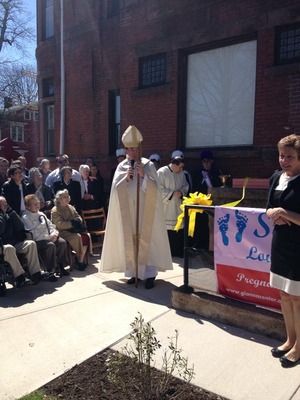 The brand NEW Saint Gianna Center of New Haven, CT was officially and blessed today, a beautiful spring day.
The brand NEW Saint Gianna Center of New Haven, CT was officially and blessed today, a beautiful spring day.
Pope ordains 10 men to the priesthood of Jesus Christ
Earlier today in Rome Pope Francis ordained 10 men to the priesthood of Jesus Christ. He showed up early to the sacristy to spend time in prayer with each of the men to be ordained. For bishops, ordinations are their way of being generative; the newly ordained are often referred to as spiritual sons of the bishop. The Pope ordained pastors, not functionaries; he ordained shepherds of souls, not church babysitters. Below is his homily.
Beloved brothers and sisters: because these our sons, who are your relatives and friends, are now to be advanced to the Order of priests, consider carefully the nature of the rank in the Church to which they are about to be raised.
It is true that God has made his entire holy people a royal priesthood in Christ. Nevertheless, our great Priest himself, Jesus Christ, chose certain disciples to carry out publicly in his name, and on behalf of mankind, a priestly office in the Church. For Christ was sent by the Father and he in turn sent the Apostles into the world, so that through them and their successors, the Bishops, he might continue to exercise his office of Teacher, Priest, and Shepherd. Indeed, priests are established co-workers of the Order of Bishops, with whom they are joined in the priestly office and with whom they are called to the service of the people of God.
Continue reading Pope ordains 10 men to the priesthood of Jesus Christ
Jesus the Good Shepherd is desires intimate communion with us
Good Shepherd Sunday, the 4th Sunday of Easter, was observed in Rome with the ordination of 10 men to the priesthood by Pope Francis. Following the ordination the Pope delivered the weekly Regina Caeli address. Here’s an excerpt:
The voice of Jesus is unique! If we learn to distinguish it, He guides us on the path of life, a path that goes beyond the abyss of death.
But at a certain point Jesus, referring to his sheep, says: “My Father, who has given them to me…” (Jn 10,29). This is very important, it is a profound mystery, that is not easy to understand: if I feel attracted to Jesus, if his voice warms my heart, it is thanks to God the Father, who has put in me the desire of love, of truth, life, beauty … and Jesus is all this to the full! This helps us to understand the mystery of vocation, particularly the call to a special consecration. Sometimes Jesus calls us, invites us to follow him, but maybe we don’t realize that it is Him, just like young Samuel.
Pope Francis
Regina Caeli address, 21 April 2013
Fourth Sunday of Easter
World Day of Prayer for Vocations
Happy 8th anniversary of election to Benedict XVI, pope emeritus of Rome
Rose Hawthorne’s cause for sainthood advances
The process of becoming a saint, if you are not a John Paul II or a Mother Terese can take some time. When I heard the news of the completion of US side of Rose Hawthorne’s cause for canonization was made, the other day from a Dominican priest friend, a “praise God” rang out! The last significant ecclesial judgement made on the sanctity of Rose Hawthorne was in 2003 when she was declared to be a Servant of God.
Servant of God Rose Hawthorne (1851-1926), was founder of the Dominican Sisters of Hawthorne, led unusual life as a wife, mother, and convert. Rose was born in Lenox, MA, and died in Hawthorne, NY. In religion she is known as Mother Mary Alphonsa, OP. Rose worked to comfort the poor dying of cancer. The diocesan phase for cause of canonization was opened by Cardinal Edward Michael Egan. Rose Hawthorne was declared Servant of God on February 4, 2003. Father Gabriel B. O’Donnell, OP, is the postulator. On 9 April, the necessary documentation signed by the archbishop of New York, Timothy Cardinal Dolan. On 20 April 2013 Father O’Donnell will be delivering this phase concerning Rose’ heroic virtue and the writing of the historical report to Rome’s Congregation of Saints. For more info: www.hawthorne-dominicans.org
The Catholic New York reports the story.
Hawthorne is one 10 people with connections in the State of New York who are being considered for sainthood.
Music has the power of the heart
It seems the only possible means to process the Boston tragedy which is being lived today gives voice to man’s desire to speaking with the Infinite, speaking with the Triune.
The heart is deeply moved by the power of music notes. Indeed, music has the power of the heart because it has the ability “to sense infallibly the true and the genuine.”
Some of my thinking on music recently has been informed by the thinking of Pope Benedict XVI who had a profound appreciation for music as reaching the inner depths of the souls. In his book, A New Song for the Lord, then Cardinal Ratzinger said, “faith becoming music is part of the process of the Word becoming flesh“ (p.122 ). And in his book Salt of the Earth, he answers a statement about Mozart:
You are a great lover of Mozart.
Yes! Although we moved around a very great deal in my childhood, the family basically always remained in the area between the Inn and the Salzach. And the largest and most important and best parts of my youth I spent in Traunstein, which very much reflects the influence of Salzburg. You might say that there Mozart thoroughly penetrated our souls, and his music still touches me very deeply, because it is so luminous and yet at the same time so deep. His music is by no means just entertainment; it contains the whole tragedy of human existence.
There aren’t too many experiences in life that you can claim to experience a “thoroughly penetrated our souls“ which also illumines the soul. Hence, what we experience in music is not mere entertainment.
In response to an email I sent about my friend Paul J. Murray’s this Sunday’s program, “A Concert for Peace,“ a friend of mine, Jane, sent me this article because like many of us, she has been moved by the beauty of music. Like Jane, I, too, was moved by parts of this article this regard, and I recommend that you consider the author’s expertise.
Milan Lach nominated auxiliary bishop of Presov
There is a new auxiliary bishop for Greek Catholic Archeparchy of Presov, Slovakia, Jesuit Father Milan Lach. He is the first Jesuit to be elected a bishop during the pontificate of Pope Francis.
Bishop-elect Lach will join another Jesuit who serves as the Archbishop of Presov, Ján Babjak, 59. The archeparchy has more than 140 thousand people. Archbishop Babjak was just here in the USA making a pastoral visit.
Bishop-elect Milan, 39, has been the vice-dean of the the Faculty of Theology of the University of Trnava. Lach entered the Society of Jesus (the Jesuits) in 1995 and ordained priest in 2001. For 2 years he worked at the Centre of Spirituality East-West of Michal Lacko, where he was also the Jesuit superior. In the 2009 he was awarded a degree in spirituality at the Pontifical Oriental Institute and livingnext door at the Pontifical Russian College.
In 2010 he became a member of the editorial board of the theology journal, Verba Theologica.
Mnohaja l’ita!
-thumb-400x299-14247.jpg)
